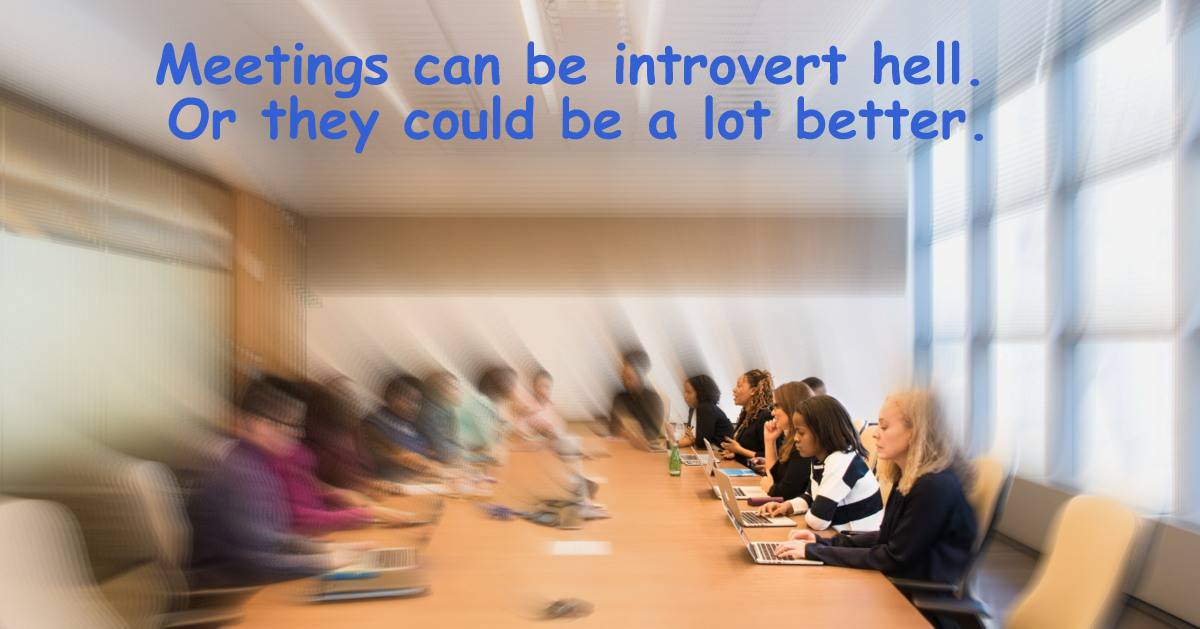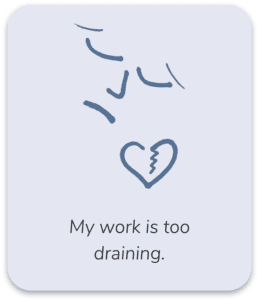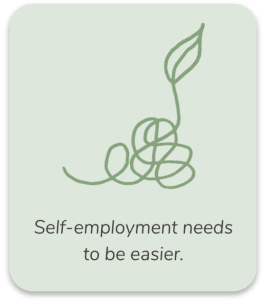Oh my, if you ask introverts one of their biggest dislikes, it’s meetings. And yet, if we stop going to meetings, we risk losing the chance to have a say in the things that effect our lives. Plus we have valuable ideas to add. It matters to the groups we’re part of, and to the greater good.
So… then what if we hate meetings?
I’ve discovered over time the problem is that most meetings are poorly led and that makes it a problem for everyone. It’s just that it’s mainly the introverts who notice the problem because meetings work poorly especially for us.
I ended up explaining my thoughts about meetings and how it can be easier for introverts, and for the good of all, in this advice column.

Dear Val,
How do I survive the “theater of meetings”? As an introvert, I don’t feel comfortable with the real-time verbal sparring and arguments.
I don’t have the snappy comeback, the rhetorical parlor trick that sways the boss or wins people to my side. My head gets so full of various ideas that I’m just not ready to pull it together in a neat package of words. And by the time I might be ready to share something, the conversation has moved on.
Because of all this, I don’t like meetings, and it shows. People can probably sense my discomfort. So what should I do about meetings when I am so uncomfortable?
–Miffed about Meetings
My Response:
Dear Miffed,
I’m so glad you wrote about your struggle with meetings because just about every introvert I know has described a similar problem. After networking angst, it’s probably the top concern I hear. So we need to talk about it!
I’ll explain and provide for some meeting survival tips for introverts.
Introverts and meetings: a bad match?
First, let’s just say it: most meetings are not run well. Plus, they’re usually led in a loose way that ends up working better for extroverts than introverts.
The typical format of free-for-all discussions favors people who are more comfortable jumping in before thinking through their thoughts. Extroverts are naturally more comfortable jumping in quickly. Their way is not better or worse than ours—it’s just different.
Introverts prefer to think before speaking, to take in a lot of information about what’s happening in the room, and to integrate all that into a new contribution.
All that internal processing doesn’t happen instantly, but it’s important, and it brings a valuable perspective to the conversation. I bet when you do speak, people stop and listen because you’ve put a lot of thought behind your words.
In the typical free-for-all format, the faster responses (or what you called “snappy comebacks” or “parlor tricks”) can dominate. Nobody likes being dominated. That’s why we get so frustrated in meetings!
Speed ends up being favored over quality of contributions. Both introverts and extroverts have something valuable to say. Speed is not the true test of value. Unfortunately, our culture seems to mistake speed for value. A sad state of affairs.
Changing things starts with you knowing your input is valuable too—even if it’s not speedy.
Making meetings more introvert-friendly:
In her book, Quiet, Susan Cain discussed research about what makes meetings effective and ineffective. (Check out her aptly named chapter 3, “When Collaboration Kills Creativity.”)
The research explored in Cain’s book showed that allowing for individual time to think leads to the best ideas.
For instance, live group brainstorming turns out to be ineffective, despite its popularity. Alternatively, online brainstorming, which allows time to think before responding, is effective.
Since introverts thrive on having time to think first, they’re in a good position to contribute a lot when the structure allows for that.
Do I have to change the meeting structure?
Ideally, you could lead the way to having better meetings or collaboration methods that get better results for the whole organization. I’m not just talking about making meetings work for introverts. I’m talking about changing meetings so they work for everyone and the greater good.
To learn about better meeting or collaboration methods, a good starting place is chapter 3 of Quiet.
I know speaking up for change is not always an easy thing to do, especially depending on the work dynamics.
But don’t immediately dismiss the idea of speaking up. Look for small ways you can ask for changes. You’ll build courage and gain respect of your colleagues and superiors little by little. People will thank you when the meetings improve.
In the meantime, I know you’ll still have to withstand many not-so-fun meetings. So I’ll leave you with these survival tips.
3 meeting survival tips for introverts
These methods have worked for me and many other introverts. See if there’s one you’re willing to try out. Or maybe it will spark your own ideas.
- Write your thoughts in advance.
Get the agenda and think about the points that will be covered before the meeting. Write down your thoughts to help you remember them and to help you relax when the meeting begins.
- Experiment with speaking before you have the perfect words.
It will probably go better than you think. Part of what happens for introverts is that our love of thinking can lead to overthinking and perfectionism. To prevent that, we have to err on the side of talking before we feel ready.
In reality, we usually do just fine. After all, you’re doing just fine every day when you speak naturally in conversations.
- Ask for time to think.
Accept that sometimes you simply need time to think and that it’s okay to say so. You might say, “I’m hearing some good points. I have some thoughts brewing about it and would like to come back to that a bit later.”
It might feel awkward at first, but both you and they will be fine. Really. I carry this idea that helps me in those awkward moments: “Be you and the world will adapt.”
Readers, what’s your favorite tip for handling meetings? And I’d love to hear if you have taken steps to change how meetings are conducted.
If your concern is about meetings that go wrong, such as mired in conflict, I also answered a question specifically about conflict at work, in another advice column.
[An earlier version of this advice column originally appeared on Quiet Revolution and was syndicated on Huffington Post. Reprinted here with permission.]






2 thoughts on “Introverts Often Hate Meetings. > Meeting Survival Tips for Introverts”
You might explore public speaking workshops such as from Johanna Walker, who happens to be an introvert and understand introvert concerns: https://johannawalker.com/
Here is a short easy-to-read book you might find useful. It’s very actionable, with steps to find your way to have influence as a introvert: Quiet Influence by Jennifer Kahnweiler. https://jenniferkahnweiler.com/best-introvert-book/quiet-influence/
Kahnweiler also has a podcast and other books you might like.
You’ll also find more guidance here in this article: How Do I Cope with Conflict and Speaking Up at Meetings as an Introvert? https://valnelson.com/introvert-power/how-to-cope-with-conflict-and-speaking-up/
Best wishes.
Dear Val,
I’m an introvert looking for help in interjecting skillfully in meetings. Could you point me to anyone who does this kind of training? Thank you.